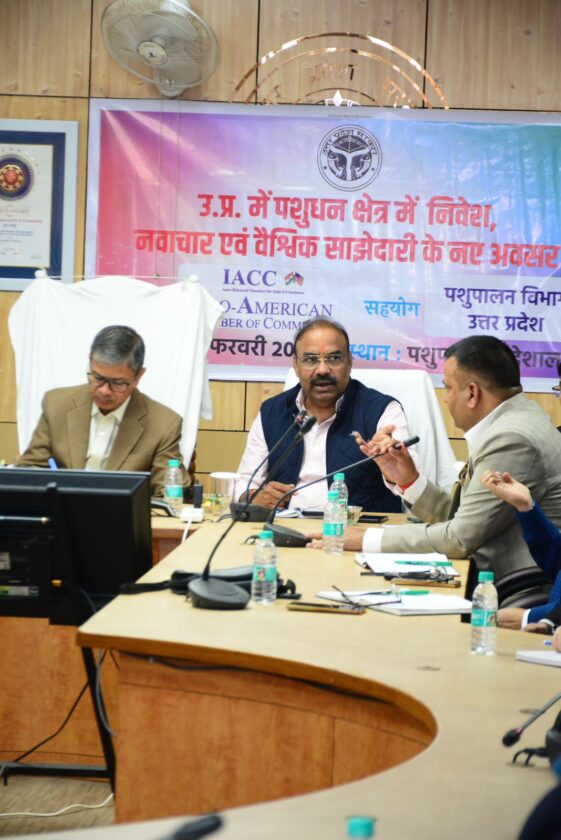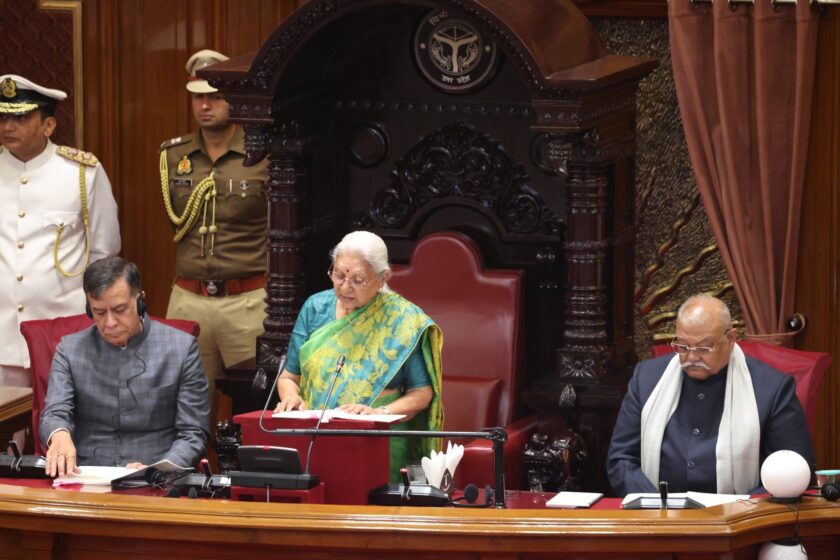Mumbai: In the heart of Maharashtra, where caste, land, and legacy have long defined politics, one name has risen above the noise to become synonymous with the Maratha reservation struggle: Manoj Jarange Patil.
For millions of Marathas—one of the largest and most politically assertive communities in the state—Jarange is not merely an activist but a torchbearer of dignity and recognition. His story, stretching from the dry fields of Beed to the crowded protest grounds of Mumbai, is both personal and profoundly political.
Over the last decade, Jarange has morphed from a marginal farmer and hotel worker into the unmistakable face of a movement that challenges governments, courts, and centuries of caste stratification. Hunger strikes, fiery speeches, and processions of unprecedented scale have made him a household name, carving his place in the long history of social movements in India.
This is the story of how a man with little formal education, modest means, and no political godfathers has captured the imagination of one of India’s most powerful yet restless communities.
Early Life: From Fields to Footpaths
Born on August 1, 1982, in Matori village of Beed district, Manoj Raosaheb Jarange was the youngest of four brothers in a family sustained by small farming. His parents, Raosaheb and Prabhavati, tilled the land but could never escape the precarious cycle of debt and drought that defines much of Marathwada.
Jarange dropped out of school after Class 12. He worked briefly at a local hotel in Jalna, waiting tables and cleaning dishes. Later, he tried his hand at a sugar factory job. Neither offered stability.
Marriage to Soumitra brought him to Shahgad village in Jalna, where they raised three children—two daughters, Pallavi and Vaishnavi, and a son, Shivraj. To sustain his activism, he sold part of his ancestral four-acre landholding, a symbolic act that reinforced his image as a leader who shared the sacrifices of his people.
For years, he lived on the margins, surviving hand-to-mouth, but also absorbing the everyday frustrations of farmers and youth around him: shrinking landholdings, mounting unemployment, rising costs of education, and the gnawing perception of exclusion from government jobs and benefits.
The Spark: A Community in Search of Justice
The Marathas, despite being nearly 30% of Maharashtra’s population, sit at the crossroads of privilege and deprivation. Historically dominant as landowners and warriors, they remain politically influential, but large sections of the community—especially in rural Marathwada—struggle with poverty and a lack of opportunities.
The 2016 Kopardi rape and murder case, in which a young Maratha girl was killed by Dalit men, ignited widespread protests. Silent marches spread across the state, coalescing into the Maratha Kranti Morcha. For many, this was the moment the demand for reservation transformed into a mass movement.
Jarange, who had already founded the Shivba Sanghatana—an outfit named after Chhatrapati Shivaji Maharaj—stepped in as a grassroots organizer. His anger at political parties’ half-hearted measures pushed him deeper into activism.
When the Supreme Court in 2021 struck down the Maharashtra law granting Marathas a 16% quota under the Socially and Educationally Backward Classes (SEBC) Act, the setback only sharpened the community’s sense of betrayal. It also gave Jarange his defining cause: pushing for Marathas to be classified under the Kunbi OBC category, ensuring access to reservations in jobs and education.
The Turning Point: Hunger as Protest
September 2023 changed everything.
At Antarwali-Sarati village in Jalna, Jarange began an indefinite hunger strike demanding Kunbi caste certificates for Marathas. On the fourth day, police tried to forcibly hospitalize him. The clash that followed—lathi charges, tear gas, and bloodied supporters—was televised across Maharashtra.
Suddenly, Jarange was no longer just another activist. He was a martyr-in-the-making, willing to put his body on the line.
The agitation ended after 16 days when Chief Minister Eknath Shinde promised action, but Jarange had set a deadline: December 24, 2023. When it passed unmet, he announced a march to Mumbai.
March to Mumbai: The Masses Move
On January 20, 2024, thousands marched alongside Jarange from Jalna to Mumbai’s Azad Maidan. Estimates put the crowd in the millions. Traffic snarled for days, trains ran late, and Mumbai—a city that prides itself on never stopping—paused.
On January 27, the government announced that 57 lakh Marathas with Kunbi lineage would receive OBC certificates. Jarange broke his fast but insisted this was only a step, not the destination.
By August 2025, he was back in Mumbai. Again at Azad Maidan, again on hunger strike, again testing the limits of state patience and public inconvenience. The Bombay High Court ordered protestors to disperse by September 2, yet Jarange’s defiance made headlines: he would not leave until justice was written in law.
The Man Behind the Movement
Jarange’s personal life is a study in contrasts.

His home in Jalna is modest: a small farmstead, sparse furniture, and walls lined with images of Shivaji Maharaj and cut-outs of his own rallies.
He dresses simply in white kurta-pyjamas, often draping a saffron scarf. His speeches mix earthy humor with raw emotion, invoking the suffering of farmers, the pride of Maratha history, and the duplicity of politicians.
Unlike many mass leaders, he has no convoy of SUVs, no sprawling bungalow. His credibility stems from this simplicity—and from the visible toll his hunger strikes take on his thin frame.
But the cost has been steep. His family has endured harassment and police cases. His children have grown up watching him collapse during fasts. His mother and brothers plead publicly with the government to concede, fearing the worst.
Political Ripples
Jarange has shaken Maharashtra’s political chessboard.
- In the 2024 Lok Sabha elections, his open criticism of the BJP and Deputy CM Devendra Fadnavis dented the ruling Mahayuti alliance in Marathwada and Vidarbha.
- Ahead of the 2024 Assembly polls, speculation ran high that he would form a party. Instead, he stunned everyone by announcing he would not contest or field candidates. “This is about the community, not about me,” he declared.
- His decision prevented vote-splitting within the opposition Maha Vikas Aghadi (MVA), drawing praise from Sharad Pawar. But some argued it weakened Maratha bargaining power.
Jarange remains an outsider to party politics, but his shadow looms large. Governments know ignoring him risks unrest; embracing him risks alienating OBC groups.
Controversies and Criticism
Not all view Jarange as a hero.
- OBC leaders accuse him of trying to “snatch” their quota, deepening caste tensions.
- His supporters were once accused of attacking the accused in the Kopardi case during trial hearings, raising concerns over vigilante justice.
- Courts have reprimanded his protests for causing public inconvenience, questioning whether such agitations paralyze the state.
Yet, these controversies have not dented his mass appeal. If anything, they reinforce his image as a man who unsettles the powerful.
A Cultural Icon
Jarange’s story has spilled into popular culture.
In 2024, the Marathi film Sangharsh Yoddha Manoj Jarange Patil dramatized his life. His slogan—“Ek Maratha, Lakh Maratha”—is now chanted at rallies, weddings, and on social media.
On Facebook, his page has over 130,000 followers. Memes, posters, and videos of his speeches circulate widely, portraying him as the “new Shivaji” for modern Maharashtra.
The Road Ahead
As of September 2025, the future of Maratha reservation remains uncertain.
- The Supreme Court’s 2021 ruling still blocks special quotas.
- The Maharashtra government has filed a curative petition, but legal hurdles are steep.
- Jarange demands a constitutional amendment or ordinance—a tall order requiring national consensus.
His strategy is simple: keep the pressure alive through hunger strikes and mass mobilization. His challenge is formidable: balancing Maratha aspirations with OBC resistance, legal constraints, and political opportunism.
Whether or not he secures permanent reservation, Jarange has already reshaped the discourse, forcing every party to take a stand.
Manoj Jarange Patil’s life is not the story of privilege or patronage but of grit and sacrifice. From a hotel worker cleaning tables to the man who brings Mumbai to a standstill, his trajectory captures the paradoxes of modern India: a democracy where caste still dictates opportunity, and where justice often depends on who shouts the loudest and longest.
To his supporters, he is a savior; to his critics, a disruptor. But to everyone, he is impossible to ignore.
In his own words: “I will not return until justice is done for my people.”
Whether history remembers him as the man who secured Maratha reservation or as one more chapter in the long saga of caste politics, Manoj Jarange Patil has already etched his name in Maharashtra’s political folklore.










